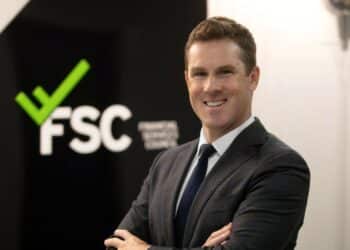Kaplan Professional chief executive Brian Knight told ifa the education group had struggled to get enough data from FASEA to help it target assistance for advisers who had failed the exam so far.
“We’ve had 1,200 fail in the first five sits, but we don’t know how many of them are multiple fails and we can’t get feedback on what they’re doing wrong,” Mr Knight said.
“We know that if people [who have failed] ring FASEA they will try and give them some general advice, and they say the main area is that people answer questions from the perspective of their licensee rather than the Corps Act. But it’s not granular enough to help advisers.”
Kaplan recently introduced a personalised counseling service in response to demand from panicked advisers who had failed the exam, with 180 practitioners having signed up for the service so far.
“What happens is a lot of these guys have never done an exam at this level and haven’t studied for a hell of a long time, and because we can’t get any feedback on how many have failed, we’ve pushed this out to say ‘if you’ve failed, talk to us’,” Mr Knight said.
“The structure is challenging for a lot of them, so we get experienced practitioners and academics to take them through what questions they found the hardest, what feedback they got, if they had studied for the exam before and if they have done any of the bridging courses.”
With the last two sittings offered online-only and FASEA cancelling face-to-face sittings for Melbourne advisers in August, Mr Knight added that the remote proctoring system was also a source of stress for advisers, with Kaplan having introduced individualised phone support for those having trouble with its online practice exam.
“If you’re that person who has a tech glitch and you’re told you’ve got to reschedule it stresses you through the roof, but if at the moment it happens one of our people rings you and says don’t panic, we’ll work through this with you, it changes the whole dynamic,” Mr Knight said.
“We think that’s what you have to do if you’ve got online exams. If you look at the August sitting there’s 2,000 registered, and if you have 2 or 3 per cent with problems, realistically that’s only about 50 people so it’s not many calls to make.”
Given the flaws in the FASEA exam process so far, Mr Knight welcomed last month’s extension of the compliance deadline, which he said would give the education provider “more time to work with” less confident advisers and convince them they may not need to leave the industry.
“If we hadn’t got the extension it would have been a mad scramble in the last few attempts with people failing, not knowing what to do and not having any idea why,” he said.
“We think those who were going to leave are going to still leave, but we don’t give up hope that we can get more in it.”




Love “the honest lawyer” and his contributions! Please keep posting. Excellent stuff!
Still waiting to hear somebody… anybody… client or adviser… say “FASEA has improved the industry!”
Sorry my friend…you are talking to the wrong people…why don’t you ask some university ethicists and they will tell you…
Yes. Yet another racket foisted on older advisers by the younger bonus paid Intrafund advisers, with no opposition to FASEA’s behaviour from a major industry advocacy group. A simply appalling case of ageism.
Why are you all so surprised, the whole thing was designed to force the older advisers out, does the FASEA exam actually prove anything except that you can answer the questions the way that the academics want you to, yes I agree we all have to know the rules and how we are to play the game, but does any of it actually help you advise client on what they should do.
The opaqueness of the FASEA exam. Lack of resources, lack of transparency and the hypocrisy that they (FASEA) wish to promote ethics raises suspicion among all.
There is no educational entity in the country that behaves in this manner. As someone who has spent decades in various forms of study while running a practice, I have never heard of such nonsense being perpetrated under the guise of improving standards.
All courses in a university setting provides all resources, assignments, and exams. If you pass you know by how much. If you fail, you know by how much and where you went wrong.
Not under FASEA. Here you have no resource material other than Acts of Parliament. No understanding of behavioural finance in text format and told that if you do not pass you will be thrown out of the industry despite your years of experience. A total farce as this also counts for nothing since advisers must also complete a degree equivalent studying the same items as above but with more rigor and transparency in a University AQF7 level.
So, you may pass this exam but yet remain a danger to your client. The exam of itself does not confer integrity but rather you have good exam technique. In my dealings with clients and their planners, I have found much to be of concern among a few planners even though they are a CFP etc.
FASEA is of itself a conflicted incompetent mess run by academics and failed lawyers. Yes, I know I am kicking my own, but if you want ethics, sadly lawyers are sometimes not the best at this and ought certainly not be preaching to the naïve. As for academics, they have been in school for years and have never been in practice dealing with real life scenarios of families and their finances. They to are lacking in thoughtful and meaningful input.
Examined further, it appears a significant issue is also that entities such as Industry Superannuation Funds get away without the need to apply ANY of the FASEA standards to their advice as they use the term “general advice”. Of itself an insipid approach to legislation which is supposed to protect the consumer.
The only answer is simply that product manufacturers need to remove themselves from the advice arena completely. The advice arena ought be the sole domain of highly skilled and qualified advisers.
The qualification for advisers to be dispensed via the university system and advisers attain an AQF7 or above standard.
What FASEA have is a very despicable untrustworthy farce of a structure with no integrity whatso ever. It is clear that FASEA is purely conflicted as they are funded by members of the Financial Services Council and are contributing to the level of contempt government, banks the industry funds and professional associations have shown towards consumers. Advisers need to stand up and be the trusted source for consumers.
As Australia now enters a deep recession and perhaps a depression, there has never been a greater need for advice. To seek to eliminate advisers is much akin to getting rid of doctors at a time of a pandemic.
Well, that’s an essay.
he lost me at opaqueness…
Here here honest lawyer!! You have called it perfectly. Well said!!!!
well said Terry M. I assume this is written by Terry.
Absolutely well said and well articulated. You need to send this brilliant piece of work to FASEA and also those morons in Canberra. Well done.
I failed the first time, no feed back is a problem as you don’t know if you failed by 1 mark or 20. The pass mark is a Credit which is 65-70, so that is not low. My biggest gripe is no recognition for prior learning, I’ve been in the business for 30 years and to be told the qualification I got on the very subjects I now have to do again, is worthless is a problem.
FARSEA, the bloody O’Dwyer appointed Ethics Overlord with ZERO Ethics !!!!!!
It can’t get much more farcical if they tried.
Income insurance, has always been my test on the caliber of the adviser. Many are unable to tell the difference between agreed / indemnity & financially underwritten. This is the fault of the bad information fed to advisers that are product sellers. Most dealerships placate the adviser with a “don’t worry be happy” attitude – like the song by Joe Doloce. sad but true.
Joe Dolce sang shuttuppa your face! Bobby McFerrin sang “dont worry be happy”. I think your test on the calibre of the adviser is quite narrow.
I’m not sure why so many long-term advisers are having so many issues with this? There have been PD days for many major licensees where practice exams have been available (and these are very much like the actual exam). I passed the practice exam with no issues.
I hadn’t studied at this level for a long time either nor do I have a degree (and as such, haven’t done exams at a degree level), but in preparation for the exam I read a couple of books about how to study better – which have helped me in other aspects of my life as well – and using the techniques learned, I had no issues passing the exam first time, leaving the room confidently 15 minutes before the exam time ended. It’s like anything else, preparation is key. The pass mark is so low that I am genuinely surprised that people aren’t passing it.
For anyone interested, the two books I read were:
– A Mind for Numbers by Barbara Oakley, and
– The College Success Cheat Sheet by Jonathan Lee Davidson
I do agree, however, that the feedback is woeful (it’d be nice to know a passing score) for something such as this. I also disagree with the need for successful advisers with a clean compliance record, but no degree (or that have a relevant degree which is not ‘approved’ because a certain amount of time has elapsed), to do a graduate diploma just to keep their job. There must be more productive uses of time than this. The only winners here are the education providers and consumers will be the clear losers of this process.
While I don’t disagree that the exam wasn’t that hard, there are people – even kids at school – who simply are not good at and/or suited to exams. I’m confident that while there are some advisers who should not be in the industry, these are the majority and unfortunately “the exam” will cause some good people to be forced out. This is just the way it is because of the way the process was implemented. Its not fair or reasonable but unfortunately the decision makers – including those who supposedly represent advisers and the profession – chose to do this for largely political reasons.
Does the exam ask technical questions like transfer balance caps or Centrelink deeming rates etc?
no – it is on Ethics and the new Code of practice.
Nah it doesn’t. It does essentially nothing to test whether you are a good adviser from a knowledge/strategy perspective. It completely missed the mark, I was actually supportive of an exam as long as it actually tested financial planning knowledge which could really separate those who should be in the industry from those who shouldn’t.
I’m young, and I’ve done a lot of exams over the last 5 or so years. The FASEA exam was the most difficult, not because of the actual content, but because you sometimes don’t know what they are asking as the wording is poor and its just horrendously designed. Its clearly put together by academics with no genuine knowledge of the industry.
Questions about when the last point is I can provide a FSG are redundant, I give it before the first meeting so I don’t need to worry about those things. Actually test me on whether I can advise clients appropriately on their actual finances, or not at all. This was basically a poor mans law exam for people who don’t practice law.
Upon saying that, at least its out the way.
Well aren’t you a hero, after 40 years of not doing this type of study and sitting an exams, having feedback to actually gauge were we went wrong would help with the stress of doing it. If you want people to take you seriously put your name to your comments rather than hide.
advisers need to find alternate incomes
what world do you live on